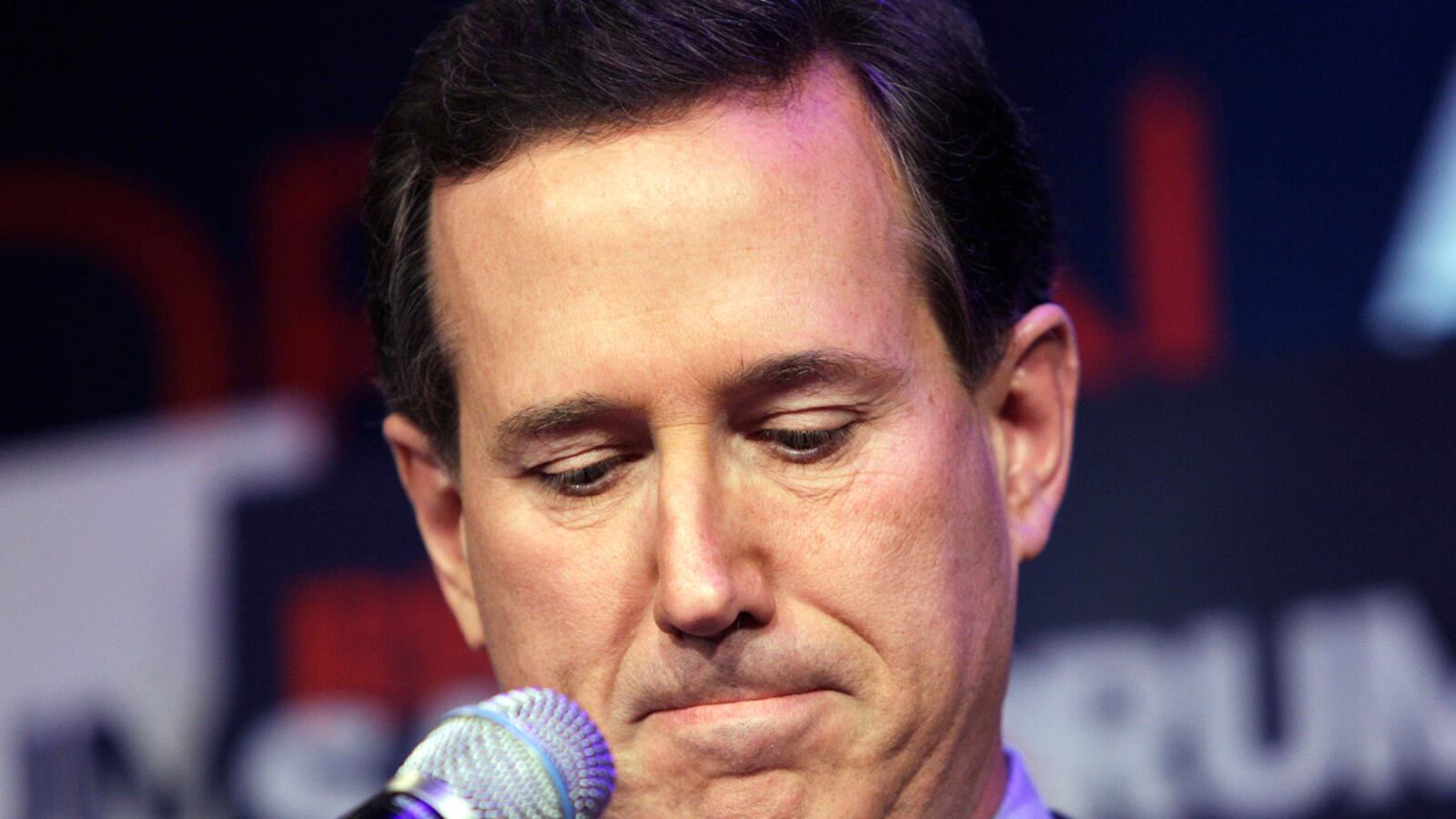When Tuesday’s Republican primary outcome became clear, Rick Santorum faced his supporters and declared it “an absolutely great night”—which it may have been, but not for Rick Santorum. He was crushed by Mitt Romney in Arizona, where, just a week ago, polls showed Santorum within easy striking distance of the frontrunner. And in the marquee contest in Michigan, Santorum blew what two polls had recently shown to be a double-digit lead, taking a loss he had no choice but to portray as a moral victory.

But the most striking feature of Santorum’s double-header defeat Tuesday was his failure to win a majority of his fellow Catholic faithful, who went for the Mormon Romney by a 6-point margin in both Arizona and Michigan.
The Catholic vote became a potentially key dynamic in the presidential race in January, when the Obama administration announced that employer-provided health-care insurance would have to cover contraceptives, sterilization procedures, and so-called abortifacients—drugs that can result in the termination of pregnancy. Catholic bishops forcefully objected to the rule, saying that to provide such services to the employees of Catholic hospitals and other charitable enterprises would amount to a violation of conscience.
Liberal and conservative Catholics joined in opposition to the mandate, and, though the White House quickly moved to amend its ruling, the bishops’ continued objections suggested potential trouble for Obama with Catholics (whose vote he carried in 2008) in the fall.
All the Republican candidates assailed the Obama policy as a violation of religious freedom, but Santorum seemed to sense that the issue presented a particular advantage to him, as the social-issues candidate. His rhetoric about matters of faith became pointedly doctrinal, and new notice was paid to old Santorum views—such as his conviction that contraception is “harmful to women.” He voiced the opinion that prenatal testing was mostly a predicate for abortion, and mused aloud about Satan’s role in our national decline. Last weekend, he repeated his criticism of John F. Kennedy’s 1960 talk to a group of Baptist ministers, in which JFK insisted that a president’s personal faith should not determine the execution of his public duty. That concept, Santorum said, “makes me want to throw up.”
Kennedy’s purpose in that 1960 appearance had been to downplay the role of faith in his public life, a move he considered necessary if he were to have any hope of becoming America’s first Catholic president. Santorum’s purpose was just the opposite, and it seems to have been proved a serious miscalculation. In an election environment in which jobs and the economy are the driving issues, Santorum’s harsh criticism of the first Catholic president seemed badly off key.
In Michigan’s open primary, four in 10 voters were self-described Democrats or independents, and Santorum attracted their votes by a wide margin. That helped to bring him close enough to be able to claim a moral victory. But Santorum lost the two cohorts he ought to have won if he hoped to emerge today as a credible threat to Romney—his fellow Catholics, and another key group in this primary season: voters describing themselves as Republicans.






